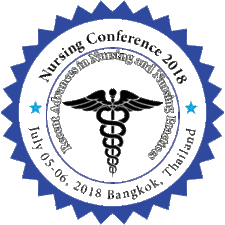
Dilshad Begum
Aga Khan University, Pakistan
Title: Exploring the research participants’ perceptions and experiences of the informed consent process in clinical trials and observational studies at Karachi Pakistan
Biography
Biography: Dilshad Begum
Abstract
Ethical and legal dogmas mandated obtaining informed consent from the research participants and their legal representatives before enrolling them in any clinical research. Regulatory guidelines emphasize that research participants should have adequate information and understanding about the research and informed consent should be an ongoing process rather than an event. There is a debate that the quality of informed consent is poor in developing countries, as compared to the developed ones. The purpose of this study was to explore the research participants’ perceptions on the informed consent process in clinical trials and observational studies. The study also intended to assess the participants’ understanding on basic elements of informed consent, i.e. purpose, risks and benefits, voluntary participation, alternative treatment or procedures, confidentiality, indemnity or compensation for harm or injury and whom to contact in case of injury. Data was categorized into themes, categories and subcategories. Five major themes emerged from the results of the study, which includes: (1) Information disclosure, (2) comprehension or understanding and (3) voluntariness, (4) competence, (5) and decision making. The results showed that information about research studies was partially disclosed. Research participants with higher level of education have better understanding of the informed consent as compared to those who have less education. All participants shared that they have voluntary participated in the studies and most of them showed altruism as motivating factor for participation. Research participants preferred to discuss informed consent with family and then take a shared decision with the research investigators after getting all the information. Research investigators need to give proper training to the research team on research consent administration and monitor the process frequently. National and institutional regulatory bodies need to be Stringent in protocol reviews and should have infrastructure for monitoring and audits, monitor the compliance and take appropriate action on noncompliance.

